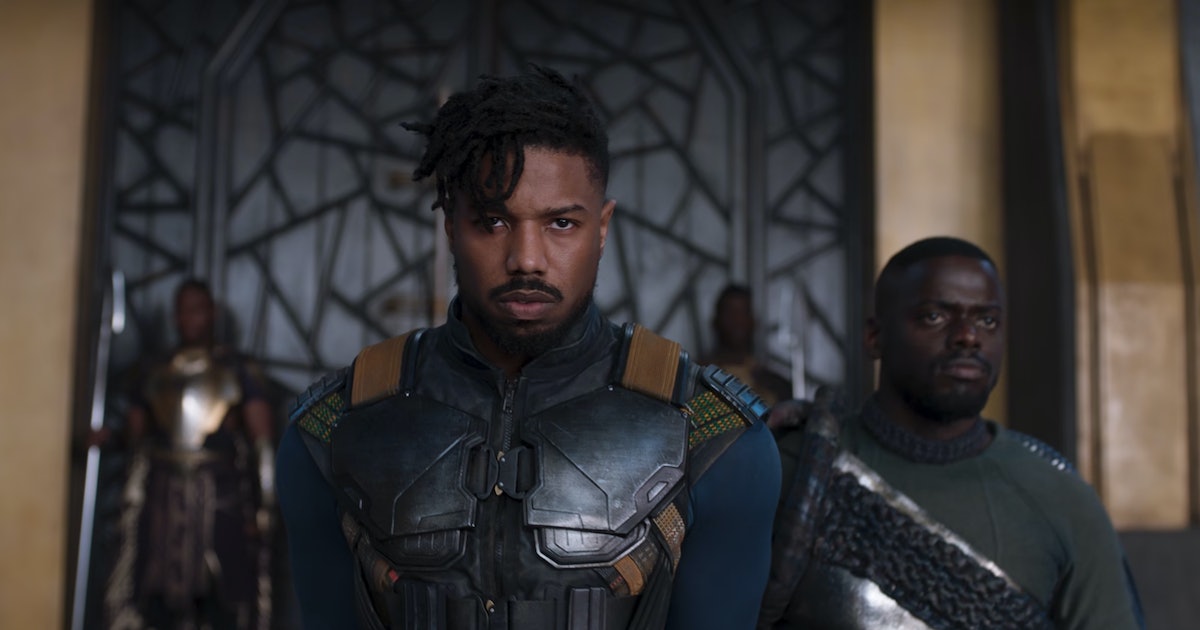
5 Years Ago, ‘Black Panther’ Fixed the MCU’s Worst Habit
It’s easy to look back at the first three phases of the Marvel Cinematic Universe with rose-colored glasses. The franchise has fallen on (relatively) hard times over the past few years, with both fans and critics growing increasingly discontent with Marvel Studios’ more recent offerings. However, while the early days of the MCU felt more cohesive and narratively assured than Marvel’s post-Endgame era has proven to be, that doesn’t mean they were without faults.
There was, in fact, a long period where it felt like Marvel was incapable of introducing any memorable villains who weren’t named Loki. For every Baron Zemo or Winter Soldier the MCU delivered, there seemed to be two or three Ronan the Accusers or Aldrich Killians. Fortunately, that changed in 2018 when Marvel released Black Panther.
Director Ryan Coogler’s acclaimed blockbuster not only became the first superhero movie ever to be nominated for Best Picture, but also helped end Marvel’s long-running villain curse. It did so by introducing an antagonist who was formidable and charismatic, and whose motivations felt considered and compelling.
Black Panther belongs just as much to its villain, Erik Killmonger (Michael B. Jordan), as it does to its other characters. Following its Wakanda-centric prologue, the film begins in Killmonger’s hometown of Oakland and uses his life’s defining tragedy, the murder of his father, to start the story. Coogler and co-writer Joe Robert Cole imbue every one of Killmonger’s decisions with a level of social weight that not only felt refreshing — especially given Black Panther’s place in a franchise that usually avoids touching on real-world issues — but that make his backstory feel emotionally potent.
From the moment he reclaims a stolen Wakandan artifact from a British museum to his emotional reunion with his father in the Ancestral Plane, Killmonger’s scenes all feel like legitimate responses to the legacy of racism and colonialism. They make Killmonger feel like the natural product of the injustices he’s endured, and by making its villain’s actions so pointed and specific, Black Panther manages to tackle its themes of isolationism, Pan-Africanism, and systemic discrimination head-on.
Killmonger does what all great villains should. He functions as a legitimate physical and ideological threat to the protagonist, T’Challa (Chadwick Boseman), and his motivations and choices allow Black Panther’s themes to fully emerge. Killmonger’s story makes a legitimate impact on T’Challa and forces Boseman’s Wakandan king to grow up and reconsider his political positions.
After Black Panther was released in 2018, it wasn’t long before many Marvel fans argued that Erik Killmonger (Michael B. Jordan) was the MCU’s greatest villain yet.
Marvel Studios
In the years since Black Panther was released, the MCU has introduced some strong villains. From Gorr the God Butcher (Christian Bale) and Wenwu (Tony Leung) to Black Panther: Wakanda Forever’s Namor (Tenoch Huerta Mejía), the MCU’s fourth phase featured a surprising number of genuinely compelling villains. Regardless of how abrupt and inconsistent her heel turn felt, even Wanda Maximoff (Elizabeth Olsen) proved to be a memorable foe in Doctor Strange in the Multiverse of Madness.
Now, it seems like Marvel is struggling more with bridging its various movies and TV shows than developing interesting bad guys. While several films helped turn that particular tide, no film has better proved that Marvel Studios can still make the most out of its comic book antagonists than Black Panther. Its legacy has been cemented for other reasons, but the way it reshaped the conversation surrounding the MCU’s villains shouldn’t be forgotten.
Black Panther is streaming on Disney+.
It’s easy to look back at the first three phases of the Marvel Cinematic Universe with rose-colored glasses. The franchise has fallen on (relatively) hard times over the past few years, with both fans and critics growing increasingly discontent with Marvel Studios’ more recent offerings. However, while the early days of the MCU felt more…
It’s easy to look back at the first three phases of the Marvel Cinematic Universe with rose-colored glasses. The franchise has fallen on (relatively) hard times over the past few years, with both fans and critics growing increasingly discontent with Marvel Studios’ more recent offerings. However, while the early days of the MCU felt more…